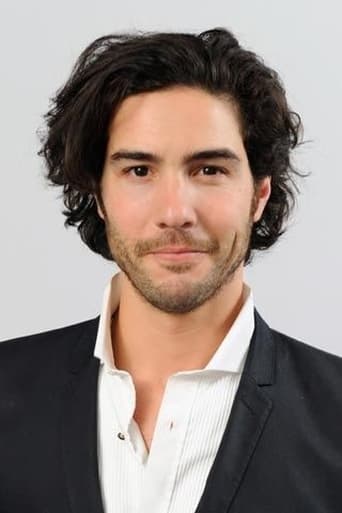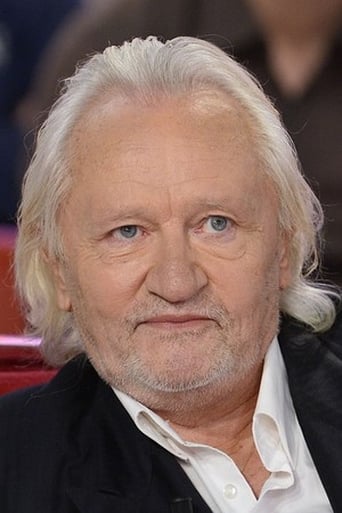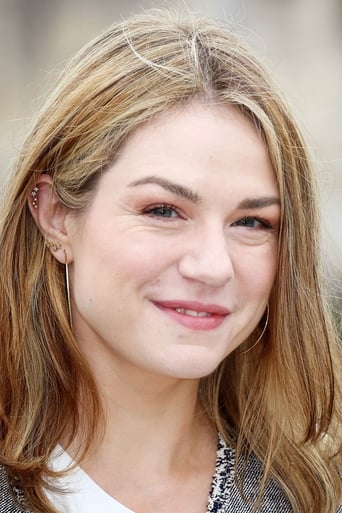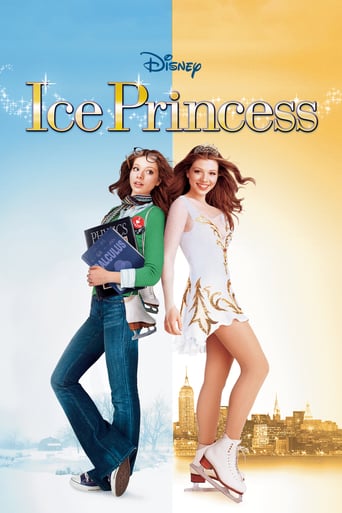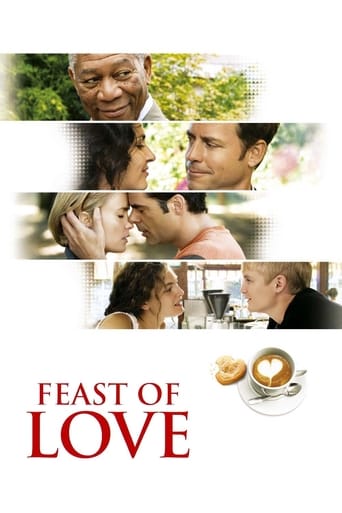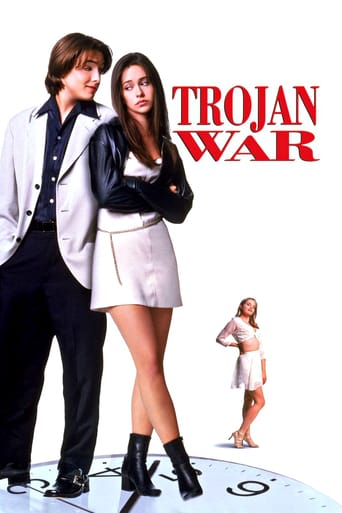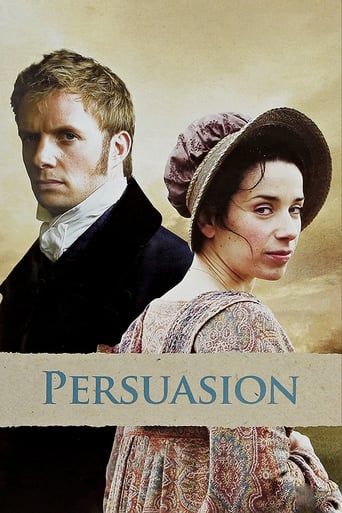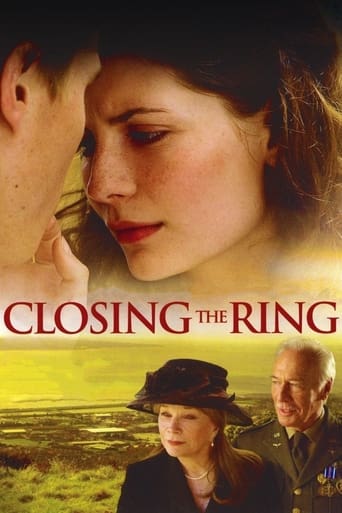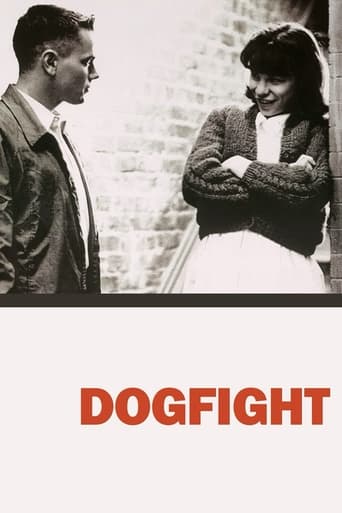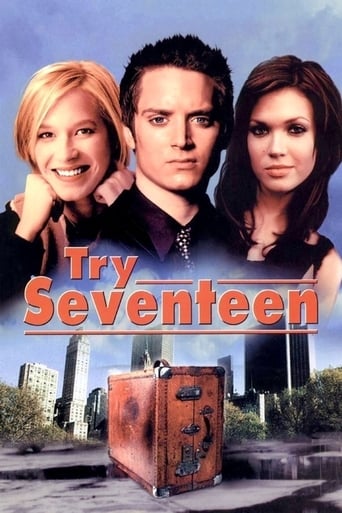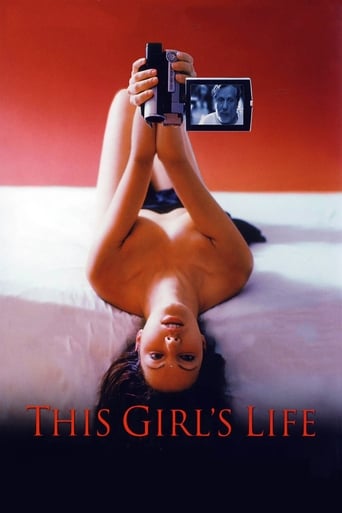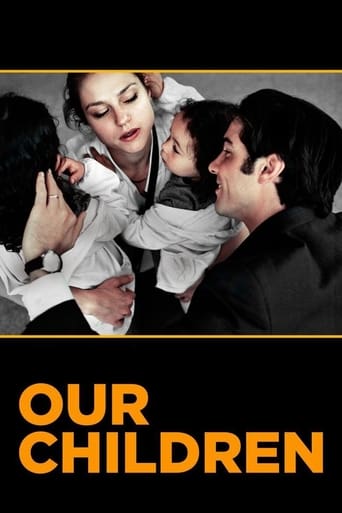
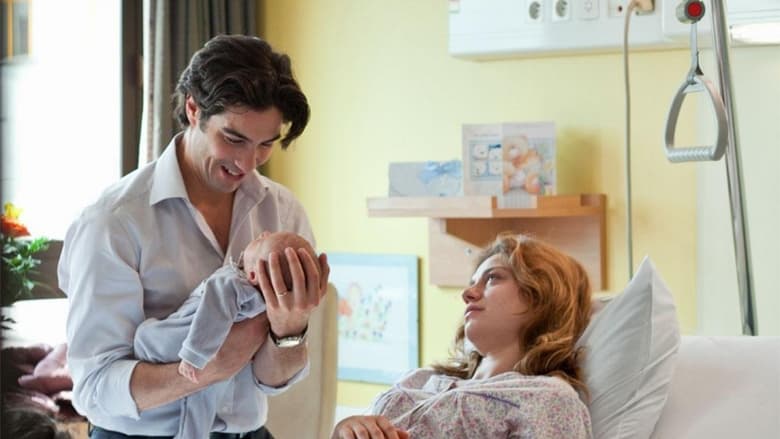
Our Children (2013)
Young and full of life, Murielle has a promising future ahead of her when she meets and falls head over heels for Mounir. A wedding soon follows, and the happy couple quickly set about preparing to make a family. However, with family come ties, and none come as tight as that between Mounir and his adoptive father. As Murielle continues to bring new life into the family, frictions between Mounir and Doctor Pinget reach boiling point. Helpless to extract her husband and children from the wealthy nest that Doctor Pinget has provided for them, Murielle is drawn into an unhealthy family dynamic. There is only one way out of this nightmare, and for Murielle all sense of reasoning begins to abandon her.
Watch Trailer
Cast


Similar titles
Reviews
Depression is a terrible thing. The opening scene of 'My Children' tells us that an awful thing has happened, and the rest of the movie provides the background to the tragedy. It's a slow-paced film, and for much of its length, it feels too slow-paced for its own plot: it's not easy to see how the status quo is going to descend into tragedy within the allotted time. In the event, the end is sudden and not directly provoked: the cause is rather internal, the final snapping of its protagonist amid inner despair. Nonetheless, depression can be induced by real-world causes, and the film is actually, aside from its dramatic conclusion, an intriguing study of a subtly abusive relationship between an elderly doctor who in effect adopted a Moroccan family. In return for his generosity, he sought control, more control than any one person should have over the lives of others. Director Joachim Lafosse strangely shoots many scenes through out-of-focus doorways, a stylistic tic that I didn't quite understand; but this a powerful study nonetheless, a disturbing portrait of a family life that is superficially idyllic, but somehow not right nonetheless
The film is directly inspired by the case of Geneviève Lhermitte, a Belgian woman who, in 2008, brutally murdered her five children.What in the world drove this hitherto model mother to such a barbarous act... is the anguished question asked by writer-director Joachim Lafosse (also Belgian) in this intense if somewhat restrained drama. A question all the harder to answer when the deplorable "heroine" of this family tragedy was at a loss, as she put it, "to understand what has happened, for I still haven't understood. I acted the opposite way to what I thought."Lafosse cannot provide THE answer, it goes without saying. How could he since the real-life murderess in person proved unable to understand herself? But he tries hard to come as close to the truth as possible. In any case, he refuses to condemn her. Instead, he describes thoroughly all the stages of the way of the cross she undergoes before committing her irreversible act.Co-written with Matthieu Raynaert and Jacques Audiard's favorite screenwriter Thomas Bidegain, "A perdre la raison" indeed follows the various developments of the affair very realistically even if the names and a few details have been changed (after all this is a fiction work, not a documentary) : Geneviève has become Murielle and her husband is named Mounir instead of Bouchaib. Plus, the couple in the fiction has four children whereas they had five in the real situation. As for their evil genius, he is not Dr. Michel Schaar any longer, but Dr. André Pinget. Basically however, all the seeds of the tragedy sown in real life are present in the fiction and in it too the wild wind cannot but be reaped: once established the toxic relationships between Murielle (who craves the intimacy of a love nest), Mounir (whose gratefulness to his foster father lets him invade it) and André (who gives the couple everything but controls their lives from A to Z), the infernal machine is activated and – a constant in classic tragedy – nothing can stop it. Such an approach will naturally be effective only if it rests on strong acting performances, which is fortunately the case here. Emilie Dequenne ("Rosetta", "La fille du RER") is deeply moving as Murielle, this Mother Courage - Mater Dolorosa turned Medea, while Tahar Rahim ("Un prophète", "Grand Central") translates to perfection Mounir's affectionate but weak temperament. As for Niels Arestrup ("Un prophète", "Diplomatie"), the formidable actor proves more menacing and terrifying than ever in the role of the couple's Nemesis hiding beneath a friendly exterior.Quite a gripping work, "A perdre la raison" is a film experience you will find hard to forget. Both a cold analysis of a tragic news event and the sympathetic portrait of a desperate woman, it is one of the most impressive movies shown in 2012.
Two arcs propel Joachim Lafosse's remarkable Our Children. The most obvious and significant is the heroine Murielle's decline from a beautiful, loving, young spirit to a depressed, oppressed, despairing drudge. She proves the dictum, Biology is destiny. From her honeymoon through her four child bearings she loses her sense of self, her liberty, her control over her life. Her last action is her tragic resolve to save her three daughters and one son from their being ruined by the sexist, patriarchal system that destroyed her. Unable to grant them liberty she gives them death. Though her Moroccan husband Mounir claims he doesn't want to raise his daughters in his sexist homeland, Murielle is destroyed by a European patriarch in Belgium. Dr. Pinget provides the antithetic arc. His apparent generosity and care are gradually exposed as heartless self-serving power and authority. Having married a young Moroccan woman, he leaves her in her homeland but brings one of her brothers, then eventually the other, to Europe variously to serve him. When his hopes to have Mounir join his medical practice are dashed, he hires him for office work. He pays for Mounir and Murielle's honeymoon, then agrees to join them. He shares his house with them, then to keep them buys them an estate where he again lives with them. His callousness towards Murielle drives her tragedy. The tension between the Moroccan family and the fat, hedonistic, impotent but suffocatingly powerful white European doctor adds another compelling theme. This domestic tragedy is also a parable for European colonialism. The white power insinuates itself into its colony, funds it, wins its trust and affection, imposes its own culture, but for all its pretense of generosity and care insists on dominating it and imposing its will. Any move to independence is suppressed as an affront to nature and to reason. (The film's original French title is A Prendre la raison, or Insanity.) That ruthless power is what the male patriarchy shares with the European colonial tradition.The film opens with a woman crying, begging that her four children be buried in Morocco. So it's a whodunit. Except here the killer is the true victim. For more see www.yacowar.blogspot.com.
A KVIFF screening, from French director Joachim Lafosse, before now the film has won a BEST ACTRESS award (for Émilie Dequenne) in UN CERTAIN REGARD competition in this year's Cannes. It is an unsettling drama concerns a tragedy which would be quite a mind-shocker. The film begins with the wife lying in the hospital bed (clearly after some severe accident) and mumbling that her children should be buried in Morocco, so during the subsequent truth-revealing narrative, viewers are practically preparing ourselves to undertake a tremendous calamity (my speculation is a car accident), but the film will deliver a much stronger and crueler blow, the actual long-takes of the massacre are done in an eerily tranquil restraint (considerably withdrawn from the actual execution). The foci are on the bizarre triangular relationship among three people, Mounir, a young Moroccan man and his French wife Murielle, live with elderly André a rich French doctor who had a paper marriage arrangement with Mounir's mother, so he could bring Mounir with him, and provide a job for him to work in his private clinic. So technically Mounir-André's quasi father- son bond has a deeper root (than Murielle, the clear intruder could imagine) although they are no blood linkage. Later, when their children consequently arriving in this world, step-by-step Murielle finds herself suffocated by the temporal life (possibly postpartum depression), and eagerly sways Mounir to go back to Morocco with their family, to start their life anew. But thing is slipping to an abyss when André cannot risk losing them and Mounir relies too much on him (both economically and psychologically) as well. Until the confrontation between Murielle and André finally occurs, the tragedy is inescapable.A heavy string score is predestined to the solemn tenor, the film is a trifle long-haul (a 111 minute running time) and the transitions of the characters' mental activities are either too abrupt or too hackneyed, but Émilie Dequenne for sure has been splendidly extraordinary in her devastating role, her self-destroy interpretation is powerful enough to propel the story against its ill-fated destiny. The A PROPHET (2009, a 9/10) pair, Tahar Rahim and Niels Arestrup are sharing their leading status as the other two angles of the triangle hazard, and overtly the latter has a meatier presence. There is a chafed undertone against the main plot, which I dare not to sidestep, the legality of paper marriage may not be the crux behind the tragedy, but nevertheless plays an influential part of the contemporary immigrant quandary.


